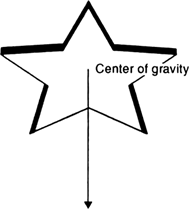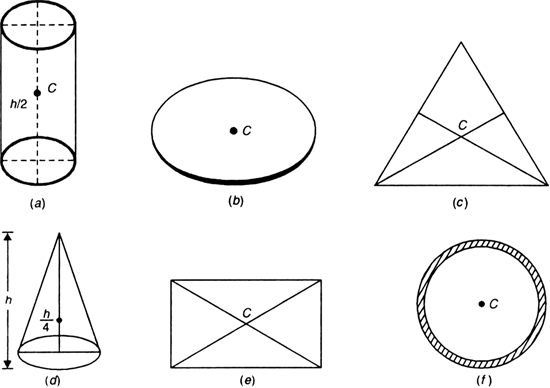(i) Define centre of gravity of a body.
(ii) What is the difference between centre of gravity and centre of mass?
(i) Centre of gravity: The point at which the resultant of all the parallel forces due to gravity experienced by various particles of the body acts or at which the whole weight of the body acts is called the centre of gravity.
If a force equal to the weight of the body is applied at this point vertically upwards, the body will remain in equilibrium.
Hence a body can be supported at its centre of gravity.

Fig. (i): Centre of Gravity of Some Regular Bodies
Fig. | Body | Centre of gravity |
(a) (b) (c) (d) (e) (f) | Right cylinder Circular disc Triangular lamina A solid cone Rectangular lamina Circular ring | Mid. point Centre of the disc The point of intersection of medians. Point on the axis at a distance h/4 from the base of the cone, h being its height. Point of intersection of diagonals Centre of the ring (outside the body) |
(ii) Centre of mass is a point at which whole of the mass of the body may be assumed to be concentrated to describe its motion as a particle.



